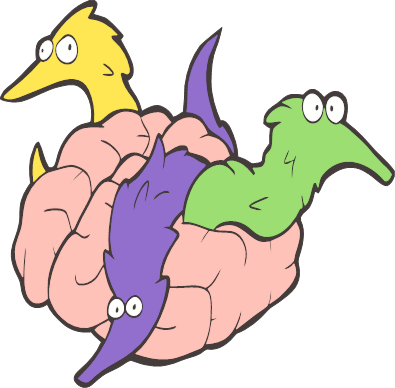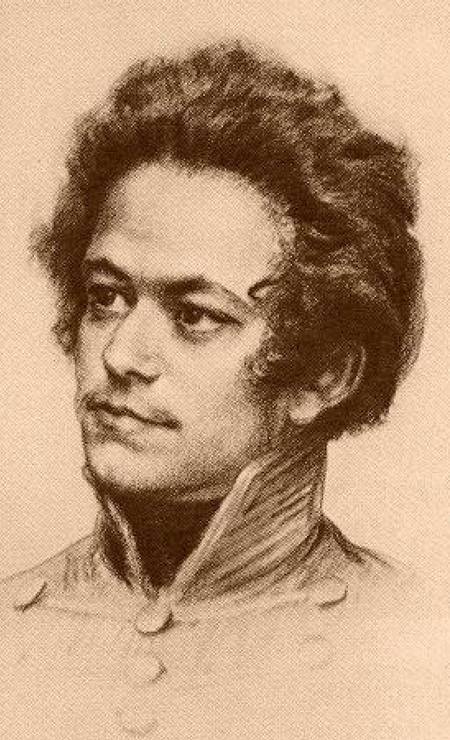So I've been putting off writing this for a long time and it'll probably need to be a series, but I've had a difficult time answering challenges from my friends who assert that China is either a Dictatorship of the Bourgeoisie or of the Bureaucracy (i.e. state capitalists), and that it's a competing imperialist power along with America (and they also say Russia but I can answer that one being stupid on my own).
The problem with China Discourse is that there is a serious paucity of sources dealing with nuanced critiques rather than just "debt trap!" bullshit or whatever, since the objections of liberals and the objections of smarter ultras are very different. At the very least, the sources dealing with this Discourse are less accessible to me.
But now I'm extremely bored and also recently saw Comrade Queermmunist's excellent rebuttal against the claim of China doing imperialism in the DRC, which gave me some hope that Hexbear would be able to answer some of these claims with something at least plausible.
The main objects of concern are the for-profit national businesses causing bureacratic class antagonism, foreign policy in the form of UN peacekeeping contributions, and straightforward imperialism at the base of its supply chain, along with miscellany like this:
https://newworker.us/international/chinas-stock-market-a-lesson-on-what-socialism-is-not/
I don't know, it's all a mess and putting off ideological work causes problems. If nothing else, let this be a practical lesson to you:
To let things slide for the sake of peace and friendship when a person has clearly gone wrong, and refrain from principled argument because he is an old acquaintance, a fellow townsman, a schoolmate, a close friend, a loved one, an old colleague or old subordinate. Or to touch on the matter lightly instead of going into it thoroughly, so as to keep on good terms. The result is that both the organization and the individual are harmed. This is one type of liberalism.
It catches up with you and makes things worse in the end.
Imperialism can be quantified. Make them do so. What is the unequal exchange, how does it compare to their own exploitation, and are there any material differences in outcome when China comes to town vs. The IMF or Canada?
They will hate this question because their accusation of imperialism is based on vibes and nut an economic critique or class analysis.
They might also hate the question because that represents a lot of work to tabulate.
Work they should've done if they wanted to make the claim! Imperialism actually means something to communists! It's not just when you have a military or trade or even foreign ownership.
I'd absolutely be critical of the CPC if I were a Chinese citizen, but as a present citizen of a NATO member there's no way I could take myself or my arguments seriously enough to actually attempt any sort of debate.
Every time I interrogate a specific feature of present-day China that irks me, there's only a history of antagonism and covert actions by capitalists which puts it in context.
Every time I interrogate a specific feature of present-day China that irks me, there's only a history of antagonism and covert actions by capitalists which puts it in context.
Could you elaborate?
I'm not OP, but Xinjiang is like that to me. Doing a lot of full society policing and re-education is not good. It's not a genocide or slave labour, and it's also not as bad as any of the western responses to large scale separatism/terrorism such as Afghanistan, Iraq, Yemen, Gaza, but it is still a shit load of police action. However, I criticize the US more for fucking up Afghanistan and sponsoring terrorism across the region than I criticize China for how they handled that situation.
When you're asked to criticize any ugly thing that done by one of NATO's official enemies trying to survive in a hostile environment created by NATO, you always have to ask if there was even a plausible alternative.
Was China not supposed to address religious reactionary terrorism in Xinjiang? Is letting reactionaries destabilize the country so it can be pillaged by the richest Westerners and their collaborators really an acceptable option?
It's pretty obvious that they're doing a much better job at handling capitalism for the people than the western capitalists, but it's debatable if this will ever stop being a necessary measure to achieve socialism or if China will slip to reaction and lose its socialist roots.
Things seem to be taking a positive direction but time will tell. It's interesting what new possibilities would open if China overtook the USA for good and starts influencing the western world more than the US. I believe it would be much more able to defend and spread socialism after having overpowered the imperialist leader at their own game, and so would the new socialist states that are yet to come.
I hope that this is the path they'll take and become fully socialist for good when the threat of counter revolution is smaller. I also don't have any idea of the material conditions that all the different parts of China have, it's possible that less developed parts of the country require capitalism temporarily in order to achieve the massive concentration of means of production and socialization of work that makes socialist revolution possible.
I think it takes a very special kind of hubris to believe that the dozens of powerless, historically ineffective "Marxist" reading groups in the imperial core are the only ones that have the right ideas about how to do socialism correctly, while the hundred million members of the ruling communist party of the largest socialist state in the world all have it wrong.
It's totally plausible that there are things about China that could be improved, but it's wild to me that a bunch of people that don't know the language and can't take a city council in their own country think they're the ones to do it.
In a way, I understand what you're saying, but ultimately this feels like standpoint epistemology in the worse sense of the term. You don't need to be a successful revolutionary to say that Gonzalites and Khmer Rouge were weirdo revisionists. Marxism is "the ruthless criticism of all that exists," and that should especially include projects that claim to be Marxist.
Marxist criticism is more than expressing a personal opinion about ideas divorced from material reality. My feelings about Chinese state policy aren't less valid than an individual CPC member's because of some metaphysical inherited quality. They're less valid because I don't speak the language. I didn't experience their history. I'm not immersed in their material conditions. Everything that the anglophone world "knows" about China is filtered through the lens of an empire dedicated to reimposing colonial subjugation on them. When imperial citizens do "criticism" of a place that only exists to them as a caricature pieced together from media dedicated to showing it as a dystopia in need of the "civilizing influence" of liberal democracy, what is the intended material result of that "criticism"? Is the power of their superior theoretical knowledge supposed to somehow make China more communist? Is it supposed to make the empire more communist?
The answer that ultras can't admit is that the purpose of this "criticism" is about making themselves more comfortable with their own conditions. It's easy to theoretically "criticize" the conditions of the empire while materially benefiting from them. If every place that successfully struggled against those conditions is actually just as "imperialist" as the empire, then then the passive impotence of the imperial "left" is actually wise and good, since anything else would have simply produced the "worse" conditions everywhere else. It's just internalizing the Churchill quote about capitalism being the worst economic system except for all the others, then telling yourself that insight makes you the only serious critic of capitalism.
It's totally plausible that there are things about China that could be improved
you don't even have to couch it that much, they have billionares and could've done some lib shit tax bracketing to prevent that without going anywhere near the communism button.
but it's wild to me that a bunch of people that don't know the language and can't take a city council in their own country think they're the ones to do it.
i don't think that's what's going on when somebody points out an obvious shortcoming any more than a guy yelling at his tv thinks he'll change how a team plays. The bigger
 problem with these people is that they'll suck down all the propaganda of emphasis and act like chinese boomers having boomer attitudes about queer people is some unique problem with china and ignore how awful things are getting in the west just because we have marriage rights (for now).
problem with these people is that they'll suck down all the propaganda of emphasis and act like chinese boomers having boomer attitudes about queer people is some unique problem with china and ignore how awful things are getting in the west just because we have marriage rights (for now).
The biggest misconception people have over the differences between colonialism and neocolonialism is that colonialism involves the military while neocolonialism is purely through economic means when as we can see with Francafrique, that's not remotely true. The boots never leave the neocolony, whether they are soldiers from the imperialist country or separatists (not so) covertly backed by the colonizer in order to destabilize the country or various members of the security apparatus of the colonizing country attempting to assassinate the revolutionary leader. Just look at Burkina Faso. Sankara was assassinated by a comprador traitor with ties to the French who then invited French troops back into Burkina Faso and even then, various Jihadist groups totally not backed by the French sprung up in the north to further destabilize the country giving France an excuse to station ever more French troops in order to "combat" terrorism. And once a Sankarist wrestled control away from the various comprador factions and kicked out official French troops again, Traore has faced numerous assassination attempts by the French. He has gone out of his way to ruthlessly purge people within the government who has sympathies with their French neocolonial masters.
This is actually existing imperialism. It's not just exporting capital, which is just 1 of 5 criteria laid out by Lenin. Even something like "owning every single gold mine" by itself means nothing since with a stroke of a pen, those mines can be unceremoniously nationalized exactly like what Castro did to property owned by United Fruit. Imperialism is more like "owning every single gold mine and having a drone base next to the mines in order to fight "terrorists" that you also supply with and having special forces assets in the capital ready to assassinate the president if they even think about nationalizing the mines." France owned the uranium mines in Niger, and when Nigeriens went out to protest, France scrambled French fighter jets to dump tear gas on the protestors. The jet obviously wasn't flown straight from France but from an airstrip located on Nigerien soil.
Well, one of the differences is that it's good to have positive examples to point to as socialists, Cuba can only carry so much weight and the DPRK is a bit of a hurdle. Just as we can all agree it would broadly be misbegotten to point to Denmark as a case of "socialism works", there is the question of if it would likewise be an error to point to China this way.
I have said this many times:
People who think China is capitalist are wrong. People who think China is socialist (in the traditional sense) are also wrong.
It is socialism with Chinese characteristics. It is its own thing.
Failing to understand this very important distinction is what’s causing people to struggle to grapple with what they should think of China today.
People try to project their own perspectives onto China, like it is a success story of capitalism, a communist hellhole, a red imperialist state, a socialist paradise and the second coming of the Soviet Union, neither of which is anything that China ever pretends to be. But one thing is certain: whether you like it or not, and however you think of it, China will make its mark in the world, with its remarkable achievements as well as historical mistakes and flaws that can be legitimately criticized without resorting to parroting Western propaganda.
Chinese socialism is at its core a nationalist project (as Mao said, no internationalism without nationalism). It will always seek to maximize and protect its own interests and the well-being of its own people, prioritizing its own survival as a nation and civilization surrounded by hostile imperialist bases, as it navigates through highly dynamic and changing global geopolitical and economic climates, preferring mutual cooperations and respecting national sovereignties to exporting revolutions and direct military interventions in foreign soils, as the Soviet Union did, or as an expansionist imperial state like the United States. It never pretends to be either.
China is socialist tho. People just have this weird idea that socialism is when like the USSR or like Cultural Revolution China. No, Socialism is a process, as such it can be divided into stages. China currently is on the primary stage, with the economy controlled indirectly and not fully planned. It retreated to this stage after the Sino-Soviet-Split and the Cultural Revolution showed they did not have the material foundations for the next stage (which they forcefully moved into back then) yet. Their aim for 2049 is to finish building those foundations to securely move to the next stage of socialism.
So Socialism with Chinese Characterisistics is not "its own thing", it is a scientific approach to the challenges within socialism in China.
State Capitalism just means 'socialism but I don't like it'. How would a state be capable of even being capitalistic in and of itself? A state cab be a capitalist state as in it allows and encourages capitalism but the practice of capitalism in a literal sense is private and not state run. State Capitalism is when industry is nationalized and I guess the labor exploitation is like...taxes? Where's the capitalism here?
i think there's a few conceptions of state capitalism that have a logic to them:
a) a 'complete' monopoly capitalism where state & corporate authority are the same--not usually the accusation levelled at China but i think ultraleft rubes would say it about the USSR
b) the state organizes & serves the capitalist order, this is actually called "liberal democracy" but westerners can't even accuse asians of being liberals without trying to make it a racially peculiar thing
not that most of "state capitalism" critiques are actually proposing a consistent analysis like these tho, most times its literally just the existence of wages and institutions with passing resemblances to joint stock companies
So your argument is there can't be any exploitation if a company is run by the state, because somehow the state is super special and distinct from private ownership?
If we switch a board of capitalist owners with a state bureaucracy, suddenly it's impossible to profit off of workers? Furthermore, it's not like the workers get control or a say over where the capital generated by their work go. Maybe it goes into social policies, maybe they go into funding a war or a genocide, or maybe they go some rich politician's 13th gold plated toilet. You don't know.
I just don't buy the argument in favor of state ownership. To the extent to which it is "socialism", nobody should like it because it just puts a new label on the capitalist like putting lipstick on a pig. The state is not a desirable element, it should not be getting all that power over the workers nor all that capital.
If we switch a board of capitalist owners with a state bureaucracy, suddenly it's impossible to profit off of workers?
Surplus-labor is not the principal feature of capitalism; capitalism is the surplus-labor exploitation of the proletariat and the socialization of production with large scale enterprise, along with the competition between capitalists causing the domination of exchange-value (and so the "boundless thirst" of surplus value). All forms of class society feature surplus-value, and communism (classless society) does as well, where this surplus is commonly owned. The state is centralization, and however much capitalist monopoly tends towards this total state ownership cannot exist under the dictatorship of the bourgeoisie.
The state is not a desirable element, it should not be getting all that power over the workers nor all that capital.
The state is an organ serving the interests of the dominant class, so does not necessarily have "power over the workers" if under the form of the DOTP (unless you want to argue against this fitting the definition of a "state," and this is just semantics), is desirable as a workers dictatorship following the overthrow of the bourgeoisie (where it would be seizing and centralizing capital if properly developed, so yes it should have power over capital), and only undesirable altogether when classes cease to exist.
I was with you until the last paragraph. It is correct to say that state capitalism as defined by ultras is something that can exist, for as you said, if you switched the major corporations' boards of trustees with de facto heads of state (and did nothing else to change the relationship workers have to the means of production) then that's essentially what you would have: state capitalism. Given the revolving door that sees CEOs becoming politicians, that's not too far off from a lot of our so-called liberal democracies we actually have in the west, it's just that a pretense of a delineation between the two (as well as a pretense of public approval) is maintained.
But the key thing to understand here is the part about the worker's relationship to the means of production. As robin_IV already explained, the state is simply the tool that the ruling class uses to enforce its interests. It makes no sense to say that the state "should not be getting all that power over the workers" if it is the workers who are the ones wielding the state. And that is definitely desirable! It's what we desire as communists who recognize we can't achieve a classless society in one fell swoop.
Socialism is the transitionary stage between capitalism and communism.
This stage was begun with proletariat taking control of the state with the goal of achieving communism.
The proletariat remain in control of the state. The goal has not changed and is not pretend.
It is socialism. Regardless of its current economic mode of operation. It is a state operating between capitalism and communism. Capitalism requires the CAPITALISTS to be in control of the state, they are not.
This is really super incredibly simple to define.
Criticism of China for continuing to use the capitalist mode of production is fine, there's very good reasons to dislike that, but it doesn't make it not-socialism, it just makes it socialism that has not yet socialised its economy.
This is really super incredibly simple to define.
The question is whether the people have remained in power or if, for example, Deng used his credibility and connections to instigate a counterrevolution like, in many respects, Khrushchev could be said to have done. The fact that there was a revolution does not, itself, insulate a country from such criticism when a lot has happened since that time and they seem to give about as much credit to a right-deviationist as they do to the country's founder.










